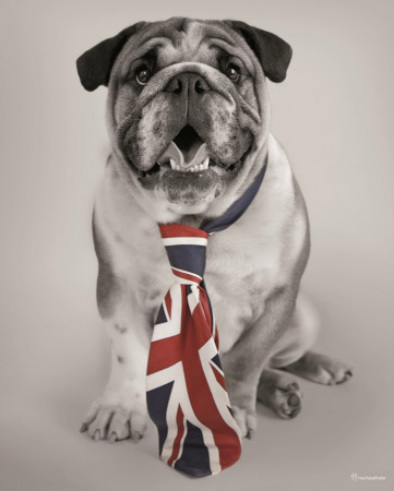
"Are you proud to be British? When we were young and growing up during the 1950's it was part of every parent's range of tasks, along with the responsibility of teachers and all custodians of children to instill a sense of pride. One remained proud of the school uniform, even if the flat cap that accompanied it was discarded at the first available opportunity and the tie knot loosened. Whatever was put on one's plate got eaten and one remained at the table until permission to leave had been granted.
The world of children and adults was full of rules to be observed. On a bus, train or in any public place, no man or child would ever think of sitting down while any woman or elderly citizen were left standing, and because most people adhered to these customs and all other traditional British ways, a sense of order and civil code of conduct emerged. One rarely heard an adult arrive home at the end of their working day and complain how hard they'd worked. Instead, they would be far more likely to express instant satisfaction and a sense of pride in having done a good day's work and having earned their meal on the table that awaited them.
I will never forget the pride exhibited by all householders when it came to washing their front steps daily and sweeping the area in front of their house door. Indeed, they carried the length of their brushes and personal responsibility in keeping their community clean to the edge of the gutter. My parents used to joke that during the Blitz of the Second-World-War years, even when houses had been bombed to smithereens and razed to the ground, if the house owner happened to find their front doorstep amid the rubble they would wash it down and whiten it ready for another day!
It may have been much harder for any man, woman, girl or boy to engage in any bad behaviour without observation from behind the street curtains of a nosy neighbour, and what happened in the street was quickly spread throughout the gossip of the street. Equally so however, good news also spread far and fast. If any boy or girl passed their eleven-plus exam to attend the grammar school, the entire street was pleased for their success and the achievement of one street resident helped to increase the pride of all street residents.
My parents and their three eldest children were all born in Southern Ireland into the proud homes of Irish Nationalists; many with rebel backgrounds against the English landlords and ruling occupiers of their country for four hundred years.
My parents and the three eldest children emigrated to England during the Second-World-War years; and despite many of the indigenous population occasionally scapegoating newcomers from Ireland and the West Indies, we were glad to live here and in time we became just as proud of all the rest of our neighbours to live here. England has been good to me and mine and for that I will always remain indebted to this great nation and be proud to be called British. William Forde: January 20th, 2014.
